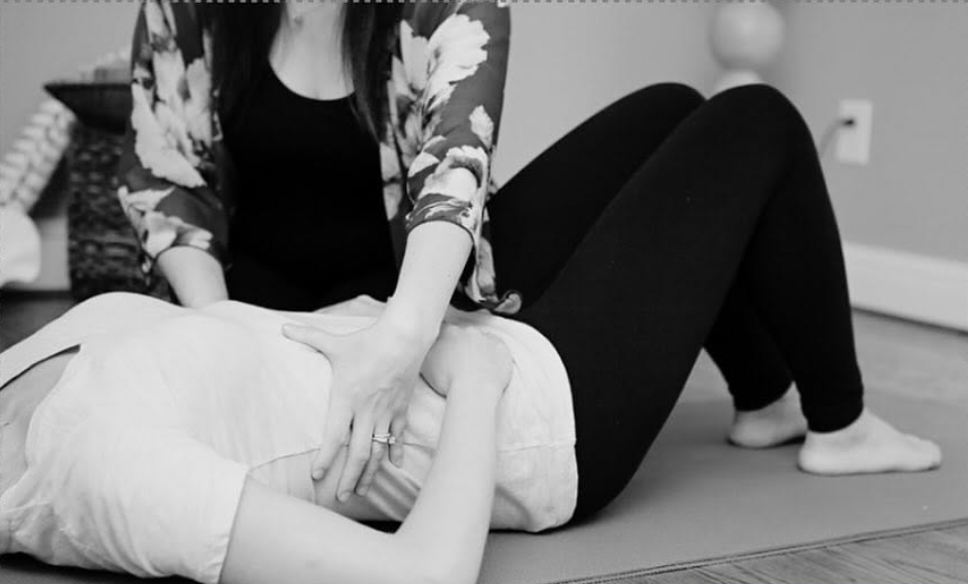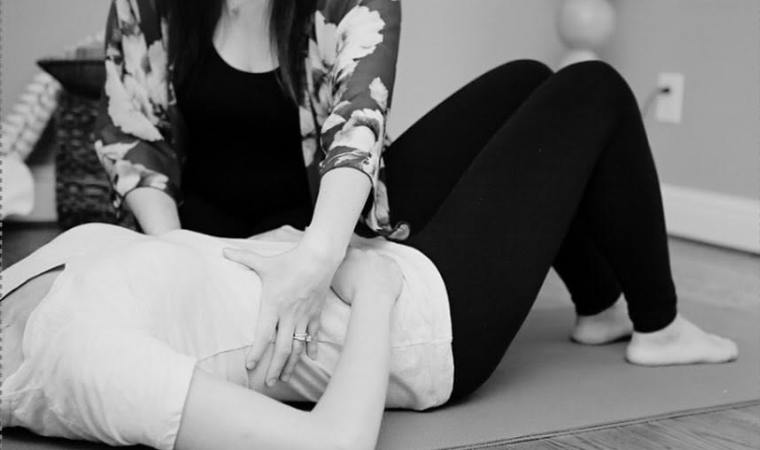Moms, I am told all the time, “I just had my baby and now I have all this pressure in my pelvic floor or pelvic heaviness. I looked and I do not know what I am seeing!”
If you have experienced this after baby you know how scary this can be. Over many years of practice, what I have seen is that you can improve and no longer experience heaviness using hypopressives in your daily routine. Many moms use hypopressives as preventative therapy after having baby.
I have seen these exercises make amazing impacts on postpartum moms:
1️⃣ Reduce or eliminate pelvic organ prolapse
2️⃣ Reduce the size of a diastasis recti
3️⃣ Reduce or eliminated tailbone pain
4️⃣ Take away heaviness or pressure in the pelvic floor
I personally use them before my day and after I finish a heavy lifting, or my fav sport — Jiujitsu!
After giving birth, your pelvic floor may feel weak or unsupported, which can lead to symptoms of prolapse like heaviness or pressure.
Exercises called Hypopressives can help these symptoms by:
- strengthening the deep pelvic floor muscles that support your organs
- helping your body manage internal pressure more effectively
- relieving discomfort while improving core connection
What are hypopressive exercises?
They are a special exercises that uses an apnea breath with targeted posture or poses to reduce pressure in your tummy, & pelvic floor.
Hypopressive exercises target slow twitch muscle fibers that enable support of the pelvic organs encouraging greater anticipation from the pelvic floor muscles.
How do hypopressives support pelvic organ prolapse (POP) or that feeling of heaviness in your pelvic floor?
- reducing internal pressure that can strain the pelvic organs.
- improving posture, which helps your body handle pressure more evenly.
- strengthening pelvic floor muscles to provide better support and stability.

Can tight pelvic floor muscles make POP worse?
Overly tight pelvic floor muscles can add tension and worsen prolapse symptoms. Using hypopressives can help by:
- encouraging gentle pelvic floor lengthening through mindful breathing.
- relaxing the nervous system to reduce stress and create balance.
- teaching your body how to respond more effectively to pressure changes.
Hypopressive exercises do more than support prolapse — they help you overall postpartum recovery by:
- reconnecting your core and pelvic floor for better function.
- improving posture and breathing, reducing tension throughout your body.
- boosting confidence as you regain strength and control.
I do recommend to work with our team to learn how to do these effectively. There may be some beginning exercises we need to start with before advancing into hypopressives.
Hint: these are safe to do after having baby as your body is healing!
Ready to start? Our team of pelvic floor physical therapist will guide you on how to practice hypopressive exercise safely and effectively. We see postpartum moms virtually & in person located in Rochester Hills, Michigan.

